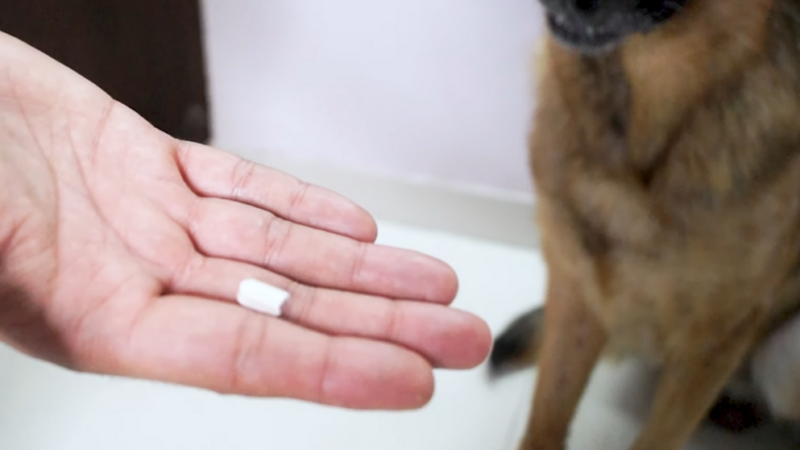Did you know fleas can be a real problem for our pups? Those tiny jumpers might seem harmless, but they sure pack a punch.
Fleas bite dogs over and over to get their blood meals, turning pals all itchy and red. If the bites get too bad, they could even develop skin issues or worms from grooming.
It’s crazy to think something so small can cause such big trouble. But fleas are pros at moving between furry friends and places to find their next bite.
The good news is that with the right flea meds from your vet, you can protect your pup from those pesky biters. No doggie deserves to feel itchy and uncomfortable, right?
I will share my two cents on the subject with you. I feel my experience will help you avoid many pitfalls.
The Case for Flea Pills
Flea pills are a modern approach to an ever-present problem, widely different from practically everything that existed before.
Quite different from topical treatments or collars, these are ingested by your dog, which means they work from the inside out.
It is a method that provides numerous benefits, including convenience, no mess, and, in some cases, extended protection against fleas, which is always helpful.
The active ingredients in these pills work to kill or repel fleas. In many cases you will see this occuring before they have a chance to lay eggs.
It is necessarry to breaking the flea life cycle and providing ongoing protection for your dog.
Prescription vs. Over-the-Counter
The main difference between OTC and prescription flea medications can be found in potency and active ingredients.
Prescription medications are mostly stronger and can offer broader protection against a variety of parasites, including:
- Ticks
- Heartworms
- Types of worms
Over-the-counter pills are immediately available and represent the first line of defense against fleas, especially for dog owners looking for a quick solution.
Finding the Right One for Your Pet

When choosing an OTC pill for your dog, there are several factors to consider, the most important being:
- Age
- Weight
- Overall dog health
On most packages you will find instructions on whether your dog’s age and weight are good enough to ensure protection from parasites.
Always read the label to understand the stages of the flea life cycle the medication targets. As you probably know, these things are not always straightforward.
Some products are designed to treat adult fleas, while others will treat the eggs before they hatch.
Safety and Side Effects
While OTC flea pills are generally safe for most dogs, there’s always a risk of side effects. Surely this is nothing strange since side effects may come with practically any medication out there.
Common side effects include:
- Vomiting
- Diarrhea
- Lethargy
- Allergic reactions
To knock down the risk completely, make sure you follow the dosage instructions carefully. Also, be sure to monitor your pet after you give him the pill, especially if it’s their first time taking Gabapentin.
If there are some reactions you do not recognize, you should contact the veterinarian hastily.
Adding Flea Pills to a Care Routine

Making flea pills a part of your dog’s routine requires discipline and vigilance.
Of course, the type of medication will dictate what kind of administering is needed. Sometimes, these should be given monthly, but there is also a chance that administering should be more frequent.
Whatever is the case, make sure to keep a strict record. That’s the only way for your not to miss a dose.
In many treatments, discipline and consistency is an absolute must, as we already pointed out.
Check on your pet as frequently as possible for a simple reason that not every treatment out there is 100% effective. There are numerous factors that should be taken into consideration.
Why is a Flea-Free Environment Important?

While flea pills for your dog are a crucial factor of flea control, they are most effective when we combine them with a clean and flea-free environment.
Regularly washing your dog’s bedding, vacuuming carpets, and treating your home and yard for fleas can significantly reduce the risk of infestation.
Remember, fleas are able to survive without a host for a couple of months. Just to make sure they will not return, keep your environment clean.
It is the best possible way to keep them at bay.
Final Words
Getting a flea pill for your dog without needing a prescription is an accessible and effective way to protect your little friend from an array of parasites.
When you are aware of all the options at your side, and when you fully understand your pet’s needs, making the best possible decision doesn’t have to be a hard task.
While OTC options are a great tool in your flea prevention arsenal, maintaining a clean environment and regular vet check-ups are also key to a happy, flea-free pet.







